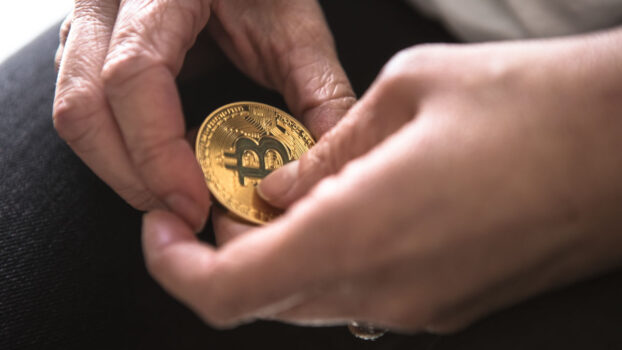Figuring out how to store Bitcoin can seem daunting. With the growing importance of Bitcoin and other digital currencies, understanding these methods is crucial. This comprehensive guide will demystify key concepts around different types of digital wallets, private key safety, and general practices for cryptocurrency security. Immerse yourself in this essential knowledge to guard your investments with confidence.
Why is Safe Storage Important?
Safe storage is of paramount importance due to the unique characteristics and vulnerabilities associated with Bitcoin. Inherently digital, these assets aren’t backed by tangible resources. Virtual currencies reside on the blockchain, increasing their susceptibility to hacking, theft, and loss, unlike cash securely stashed in physical wallets or vaults.
The rising price of Bitcoin values has turned it into a prime target for hackers and cybercriminals. The decentralized assets, offering pseudonymity, are desirable to those exploiting vulnerabilities in storage and security systems. Remember: when confirmed on the blockchain, Bitcoin transactions are irreversible.

In 2021, Liquid, a Japanese crypto exchange, witnessed this firsthand: cybercriminals stole more than $90 million in cryptocurrency. Such incidents underscore the critical importance of robust storage practices. There’s no undoing transactions or cancelling them once confirmed. If your coins are lost or stolen, recovery chances are slim.
Unlike traditional banking systems, there’s no safety net for investors who lose assets due to inadequate security measures. The onus of securing digital assets rests solely with you. The role of the user is vital in this context; the responsibility for maintaining security is yours, without recourse to a centralized authority for help if things go wrong.
To minimize risks, it’s crucial to only use cryptocurrency exchanges for their intended purpose – buying and selling Bitcoin – and avoid storing your assets on these platforms for extended periods.
Ultimately, safe storage isn’t just important, it’s essential. Recognizing this can help you protect your investments.
Understanding Bitcoin Custody
Bitcoin custody refers to the management and safekeeping of these digital assets. Broadly, this can be classified into:
- Self-custody: This involves individuals or organizations taking responsibility for the holding of their own coins.
- Third-party custody: In this arrangement, digital assets are entrusted to an external service provider for safekeeping.
- Partial custody: This option blends the control of self-custody with the security of third-party custody.
While using a third-party custodial wallet might seem convenient, it isn’t without risks. The possibilities of hacking, fraud, or other misconduct by the custodian can’t be overlooked. Here, the security of your crypto is in another entity’s hands.
In contrast, self-custody, where the owner retains complete control over their funds, is generally the most secure method for managing Bitcoin. But with this control comes the responsibility of securing the private keys, the critical component that grants access to these funds.
With great power, there must also come—great responsibility!
Stan LEE, American comic book writer, editor, publisher, and producer, in the Stinger of Amazing Fantasy #15
Custody, hence, is a vital component of Bitcoin management. It requires careful evaluation of options aligning with your investment goals, risk appetite, and individual circumstances. Choose wisely, for the safety of your bitcoin, ethereum and other digital assets hinges on this decision.
Storing Bitcoin in Cold Wallets
As we delve deeper into secure coin management, let’s explore cold wallets. We’ll take a closer look at two types to better understand their unique security attributes.
Hardware Wallets
Hardware wallets are physical devices designed to securely hold digital assets. They keep your private keys offline, effectively protecting your coins from online threats. Imagine them as your personal vaults that keep your digital treasure safe.
The advantages of hardware devices are multifold. Their offline nature provides a significant shield against cyber threats. Also, they require physical confirmation for transactions, adding an extra layer of security.
However, there are drawbacks. They can be costly, especially high-end models. Physical damage or loss is another risk. Moreover, they can be less convenient for those needing quick access to their funds, as transactions can take longer to process.
While hardware wallets offer robust security, making them the safest way to store Bitcoin long-term, they might not be ideal for users who frequently trade or need immediate access to their funds.
Paper Wallets
Paper wallets are literally pieces of paper on which your private and public keys are printed. By generating and printing the keys offline, you create a physical copy of your digital assets.
Paper wallets offer significant advantages. They are immune to digital attacks, as they exist offline. Plus, they’re often cheaper than purchasing a hardware wallet.
However, drawbacks exist. Paper is susceptible to physical damage like water, fire, or simple wear and tear. Also, it requires careful handling; a misplaced or thrown away sheet of paper could mean lost assets. Moreover, they can be inconvenient for frequent trading, as you need to manually enter your keys for each transaction.
In essence, paper wallets may appeal to those prioritizing security and simplicity over convenience and accessibility.
Storing Bitcoin in Multi-signature Wallets
Multi-signature or multisig wallets require multiple signatures to authorize transactions. This is similar to a joint bank account that needs more than one signature for withdrawals.
Advantages of multisig include enhanced security and control. By demanding multiple signatures, they prevent single points of failure. If one key is compromised, your funds remain secure, as transactions require other signatures for approval. This setup also allows shared control over assets, making it suitable for organizations or families.
However, multisig come with challenges. Setup and management can be complex, requiring a certain level of technical knowledge. Also, retrieving funds can be slower, due to the need for multiple authorizations.
In summary, multisignature wallets provide increased security and control, making them a suitable choice for those prioritizing these aspects. They might not be ideal for those requiring quick access to their funds or those unwilling to invest time and effort into properly configuring a multisig setup.
Storing Bitcoin in Hot Wallets
Hot wallets are software wallets connected to the internet, making your Bitcoin easily accessible. They come in different forms:
- Desktop wallets are installed on your personal computer, granting you direct control over your assets.
- Mobile wallets, being apps on your smartphone, offer convenience and mobility.
- Web-based wallets run on the cloud, accessible from any device, anywhere.
Hot wallets offer several advantages. They provide immediate access to your funds, making trading or spending Satoshis convenient. They’re also user-friendly, making them suitable for beginners.
However, they also have drawbacks. Their online nature makes them susceptible to cyberattacks. If your device gets infected with malware, your funds could be at risk. Also, if the service provider experiences downtime, you might temporarily lose access to your funds.
Hot wallets, while offering convenience and accessibility, come with an inherent risk of exposure to online threats. If ease of use and quick access are your priorities, they can be a good option. However, it’s not the best place to store substantial amounts of Bitcoin long-term.
Best Practices for Safe Bitcoin Storage
For secure Bitcoin storage, consider these best practices:
- Utilize a hardware wallet: These devices, keeping your private keys offline, are regarded as highly secure for Bitcoin storage.
- Trust your wallet provider: Always opt for reputable providers. Research before making a choice.
- Establish a strong, unique password: Opt for a password that’s not easily guessable. Avoid reusing passwords across accounts.
- Enable two-factor authentication (2FA): 2FA adds another security layer, making unauthorized access challenging.
- Backup your recovery phrase: Create a backup of your recovery seed phrase and store it safely, be it secure cloud storage or a physical safe.
- Keep software updated: Regularly update your software to minimize exploitation risk.
- Never share private keys: Sharing private keys is like handing over access to your assets. Avoid it.
- Diversify your storage methods: Consider using multiple wallets and a mix of cold and hot storage, reducing the risk of total asset loss.
- Stay alert to scams and phishing efforts: Always verify the legitimacy of the platforms or app you’re engaging with and avoid clicking on dubious links.
By adhering to these best practices, you can substantially lower the risk of losing or having your Bitcoin stolen. Taking precautions today can save potential headaches in the future.
Frequently Asked Questions
Investing in a cold wallet can be highly beneficial for long-term holders due to its robust security features. By storing private keys offline, it significantly reduces the risk of cyber threats. However, it might not be ideal for frequent traders due to slower transaction processing. Always consider your personal habits and risk tolerance when deciding on a storage method.
Moving your Bitcoin to cold storage involves a few steps:
1. Purchase a cold wallet from a trusted provider, and set it up following the manufacturer’s instructions.
2. Write down and securely store the recovery phrases.
3. Open the wallet interface and find the ‘receive’ section to get your receiving address.
4. From your current wallet or cryptocurrency exchange, choose the ‘send’ or ‘withdraw’ option, and enter the cold wallet address. Always triple-check addresses when sending Bitcoin.
5. Confirm the transaction. It might take some time for it to be processed and the funds to appear.
There isn’t a one-size-fits-all answer to the best wallet for storing Bitcoin, as it largely depends on individual needs and priorities. It’s important to balance security risk, convenience, and your personal habits when choosing a storage strategy. To explore in detail and discover a solution that fits your needs, consider reading our comprehensive article on the top crypto wallets.
Conclusion
We’ve looked at different storage options, and types of digital wallets: hardware, paper, multisig, and hot wallets. We learned that there is no best way to store Bitcoin. And that each comes with its own benefits and drawbacks, impacting their usability and security levels.
We’ve also examined custody and discussed why safe storage is crucial in Bitcoin landscape.
Remember, the type of wallet you choose should align with your investment goals, risk tolerance, and lifestyle. A balance between security and convenience is essential. Ensure you follow the best practices for safe storage, like using hardware wallets, establishing strong passwords, enabling 2FA, and regularly backing up your wallet.
Above all, the key takeaway is: owning Bitcoin means owning your security. Be proactive in safeguarding your digital wealth. And remember, your Bitcoin is as safe as your storage method.
Ready to get started with a wallet? Don’t hesitate to check out our wallet setup guide to further bolster your understanding and be able to hold coins.
